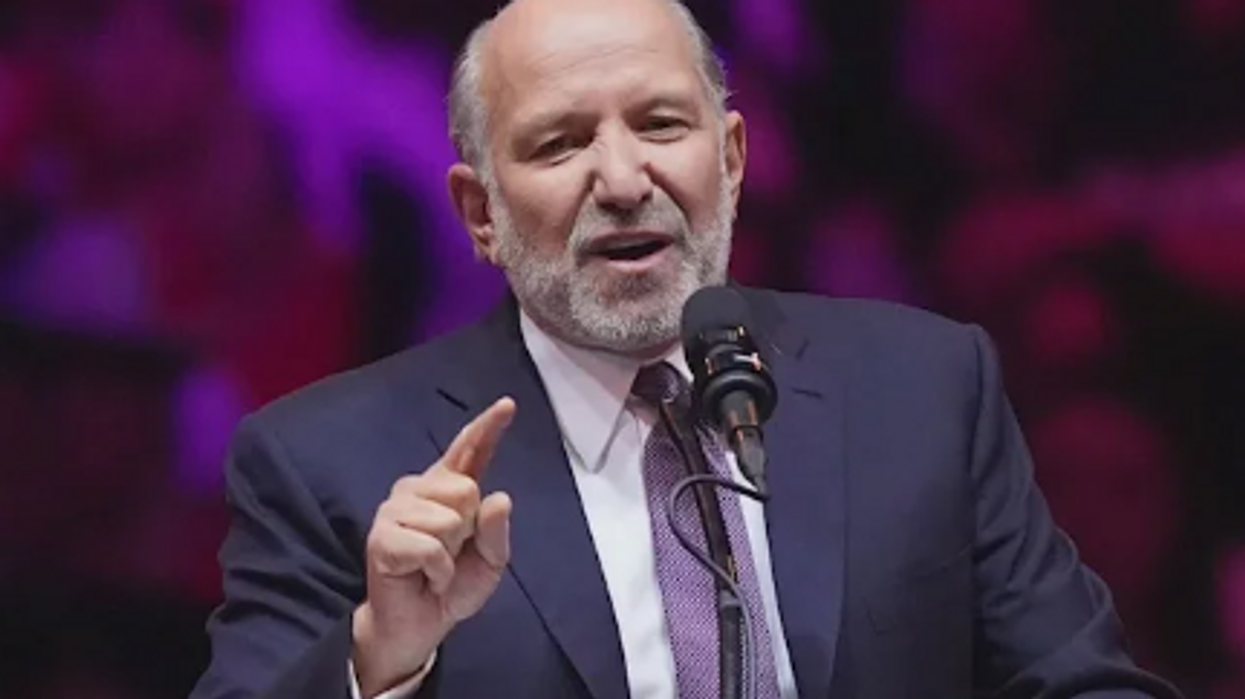WATCH: Lutnick Scorched By Audience As He Shrugs Off Tariff Worries
Commerce Secretary Howard Lutnick sought to defend Donald Trump's nonsensical tariff policy on Wednesday by falsely saying that the massive tariffs the administration placed on nearly every item imported into the U.S. won't raise prices and that no one will feel any pain.
Lutnick made the comment at an event hosted by the media outlet Axios, where he told the audience that sellers won’t raise prices—even though major big-name retailers and manufacturers like Walmart, Mattel, and Nike have already said they will be forced to shift tariff costs onto consumers.
"You go to the store now, are you feeling the pain ? No. Why not? Because there is no pain," Lutnick, a billionaire, told the audience.
He then told the audience that tariffs have been in place since April and asked, "Have any of you felt any of it? Seriously."
Lutnick was clearly expecting the audience to say no. But the audience replied with a resounding "yes," which stunned him into an awkward silence.
Despite Lutnick’s ridiculous comments, a majority of American companies say they will have to raise their prices in order to stay afloat.
“Given the magnitude of the tariffs, even at the reduced levels announced this week, we aren’t able to absorb all the pressure,” Walmart CEO Doug McMillon said. “The higher tariffs will result in higher prices.”
Meanwhile, contrary to what Lutnick said, polls show that voters are feeling the pain of tariffs. A new Civiqs poll for Daily Kos, which was conducted from May 17-20, finds that 56 percent of voters say tariffs have already led to higher prices.
It's not surprising, however, that Lutnick would say something wildly out of touch. Who can remember when he said that anyone who complains about losing their Social Security benefits is a “fraudster”?
In a podcast interview in March, when Elon Musk’s so-called Department of Government Efficiency was meddling with the Social Security Administration, Lutnick said: "Let's say Social Security didn't send out their checks this month. My mother-in-law, who's 94, she wouldn't call and complain. She just wouldn't. She thinks something got messed up and she'll get it next month. A fraudster always makes the loudest noise screaming, yelling, and complaining. And all the guys who did PayPal, like Elon knows this by heart, right? Anybody who's been in the payment system and the process system knows the easiest way to find the fraudster is to stop payments and listen.”
It was also Lutnick who said he wants Americans to toil away in factories for the rest of their lives.
"It's time to train people not to do the jobs of the past, but to do the great jobs of the future. This is the new model where you work in these kinds of plants for the rest of your life and your kids work here and your grandkids work here. We let the auto plants go overseas,” Lutnick said.
However, the new Civiqs/Daily Kos poll showed that 66 percent of Americans do not want to work in factories.
Ultimately, the pain of Trump’s tariffs is just beginning, with items hit by the nonsensical import fees now hitting shelves—or disappearing from shelves altogether.
A recent report from Yale University’s Budget Lab found that Americans can expect the tariffs to cost the average household $2,800.
That sure sounds painful to us.
Reprinted with permission from Daily Kos.











